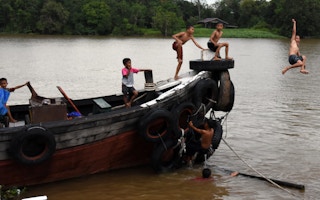With over half its land mass covered by forests and 257 million people to support, Indonesia faces an unenviable challenge: How to harness its vast landscape and natural resources for economic development while preserving its natural ecosystems.
To continue reading, subscribe to Eco‑Business.
There's something for everyone. We offer a range of subscription plans.
- Access our stories and receive our Insights Weekly newsletter with the free EB Member plan.
- Unlock unlimited access to our content and archive with EB Circle.
- Publish your content with EB Premium.
All evidence indicates that to date, economic priorities have won out. The country has the fastest rate of deforestation in the world, and most fires originating in Indonesian forests — the root of the haze that plagues Southeast Asia every year — can be linked back to slash-and-burn methods of clearing land for agriculture.
It’s not just smallholders, however, that have been blamed for the burning. For decades, palm oil, pulp and paper companies have been criticised for clearing forests to expand their plantations and sourcing raw materials from suppliers who continue to burn and destroy critical ecosystems.
But things may be changing: The last five years have seen a slew of pledges, investment and high-profile projects by Indonesia’s biggest agribusiness firms to adopt a “zero deforestation, zero burning” approach to business. They are also cleaning up their supply chains and attempting to conserve the landscapes on which they operate.
Eco-Business recently visited Indonesia’s two largest pulp and paper companies — Asia Pulp and Paper (APP) and Asia Pacific Resources International Limited (APRIL) — to find out more about what the process of balancing profits with sustainability looks like on the ground.
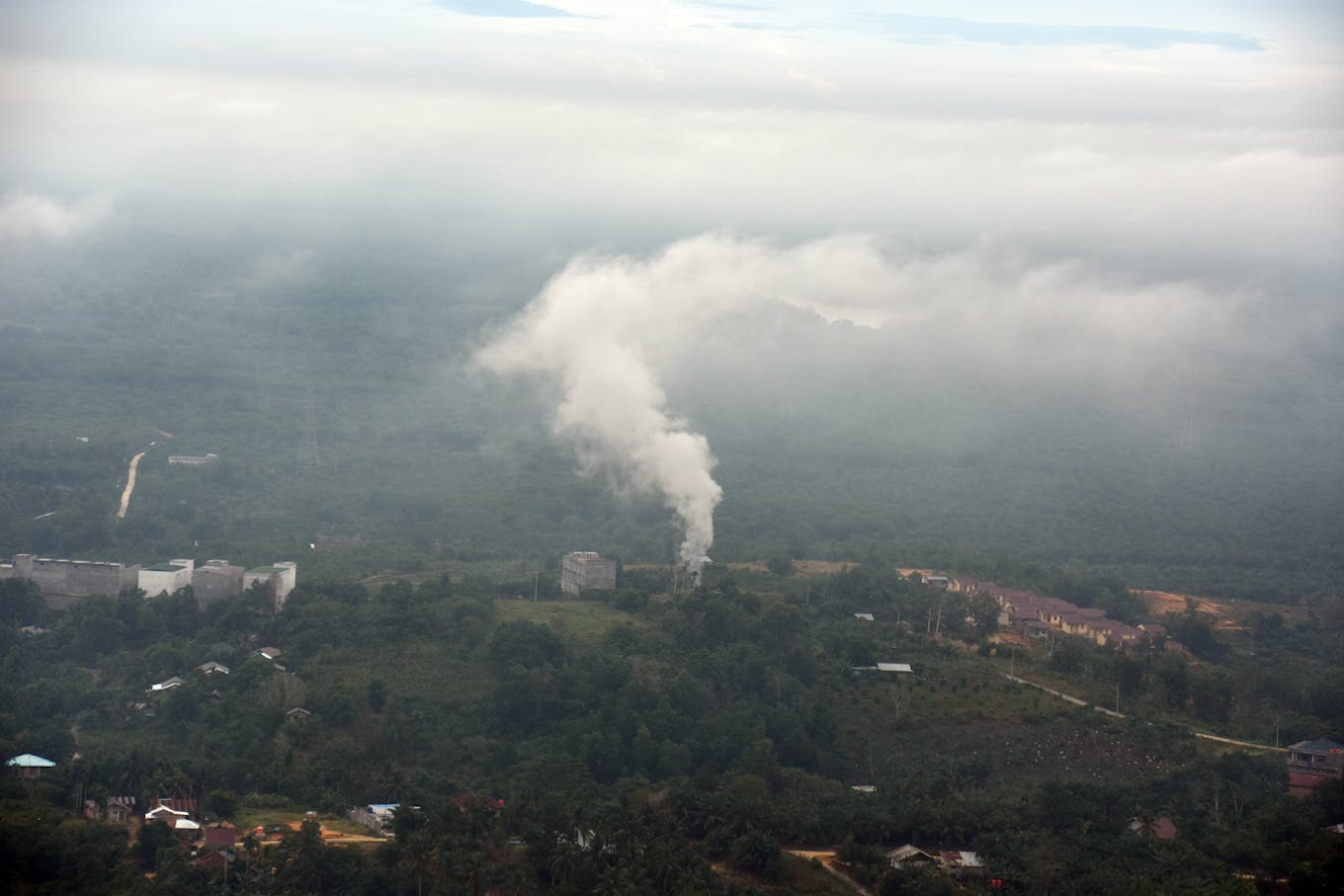
Smoke from a fire started to burn rubbish billows up over Pekanbaru, the capital of Riau, Indonesia. Whether it is to get rid of trash, clear vegetation or cook a meal, fires are a key part of the local culture and a traditional sight in the region.
While the haze is largely attributed to intentional burning, an accidental spark or even a carelessly discarded cigarette butt can also ignite a much larger blaze during the dry season.
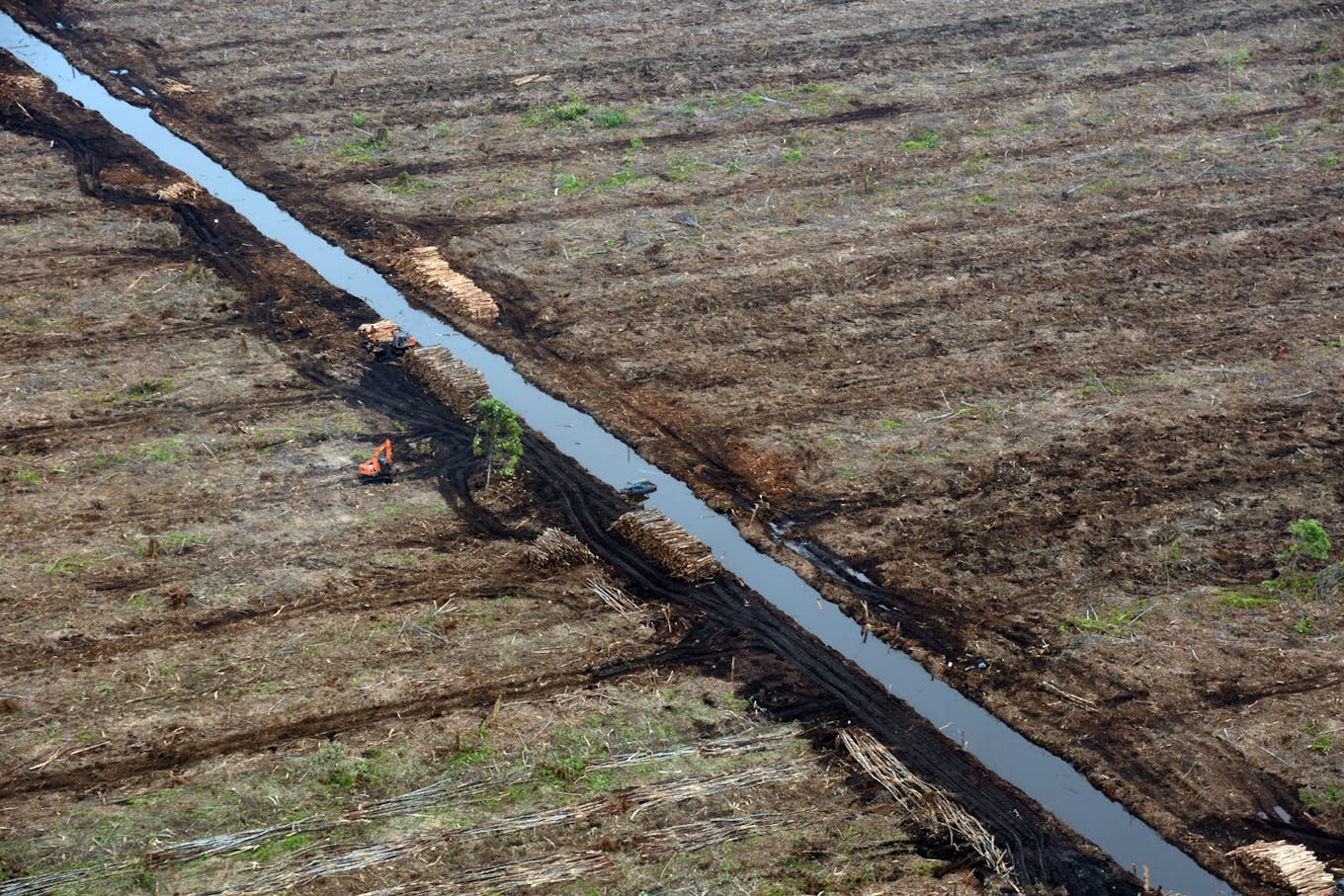
Harvesting in progress at an acacia plantation owned by Asia Pulp and Paper. The pulp and paper industry plants eucalyptus on dry mineral soils and acacia on peat land. The planting cycle for both is five years.
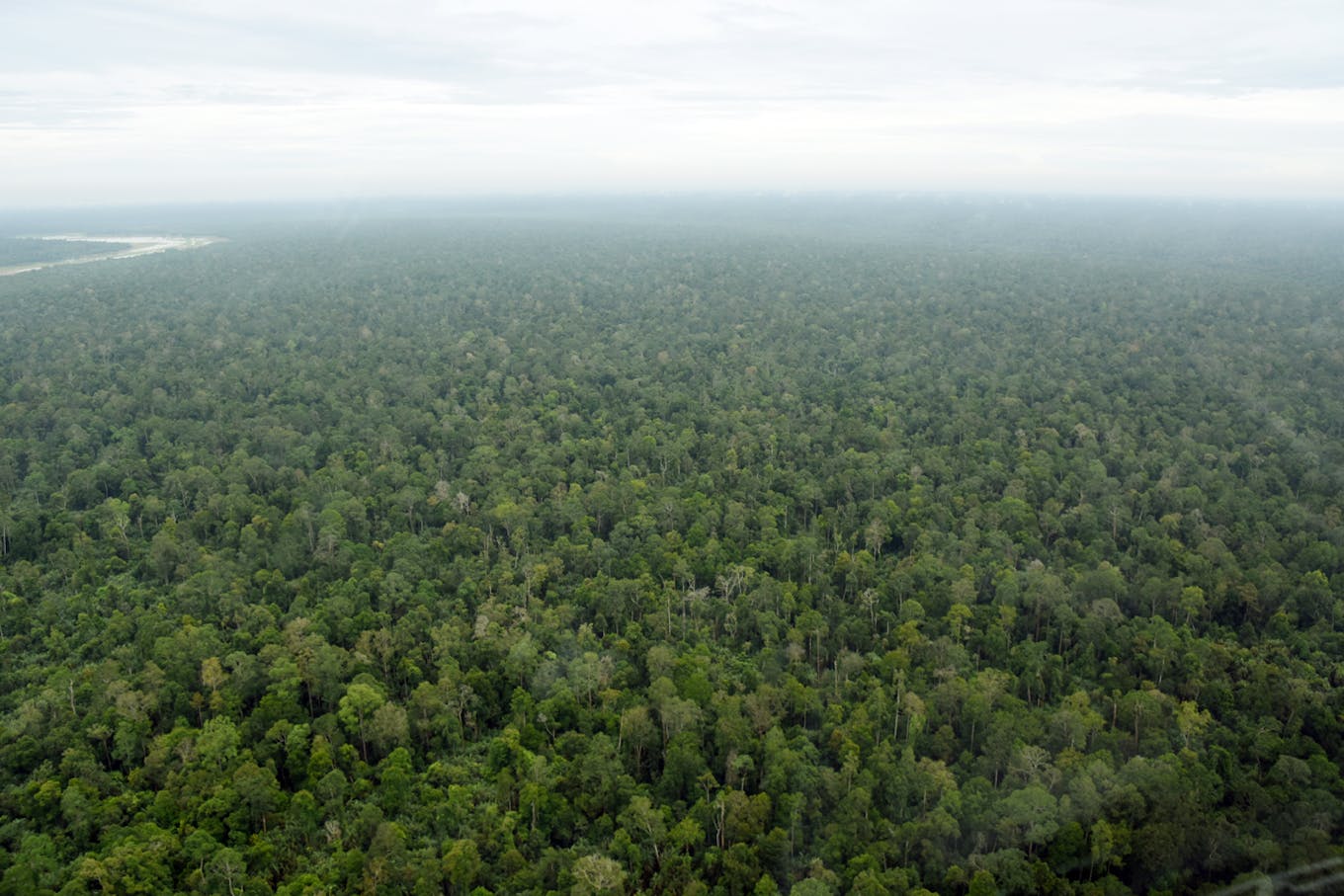
An aerial view over the Giam Siak Kecil-Bukit Batu Biosphere Reserve, a 705,000 hectare tract of land that is jointly funded and managed by Sinar Mas Forestry, which is APP’s exclusive supplier, and the Riau government, along with local universities and non-government organisations (NGOs).
At the reserve’s core is about 178,000 hectares of untouched peat swamp forest. This is surrounded by a “buffer zone” of 222,000-odd hectares of commercial pulpwood plantations managed by Sinar Mas Forestry and its partners. According to the company, these act as a protective ring around the peat forest and “serve as a model for sustainable and responsible source of high-quality pulpwood”.
A “transition zone” sits outside the buffer zone, comprising 304,000 hectares of oil palm plantations, human settlements and agricultural areas that primarily serve local communities and companies.
The reserve is home to endangered species such as Sumatran elephants and tigers, and is recognised by the United Nations Environmental, Social, and Cultural Organisation (UNESCO) as a Man and the Biosphere Reserve.
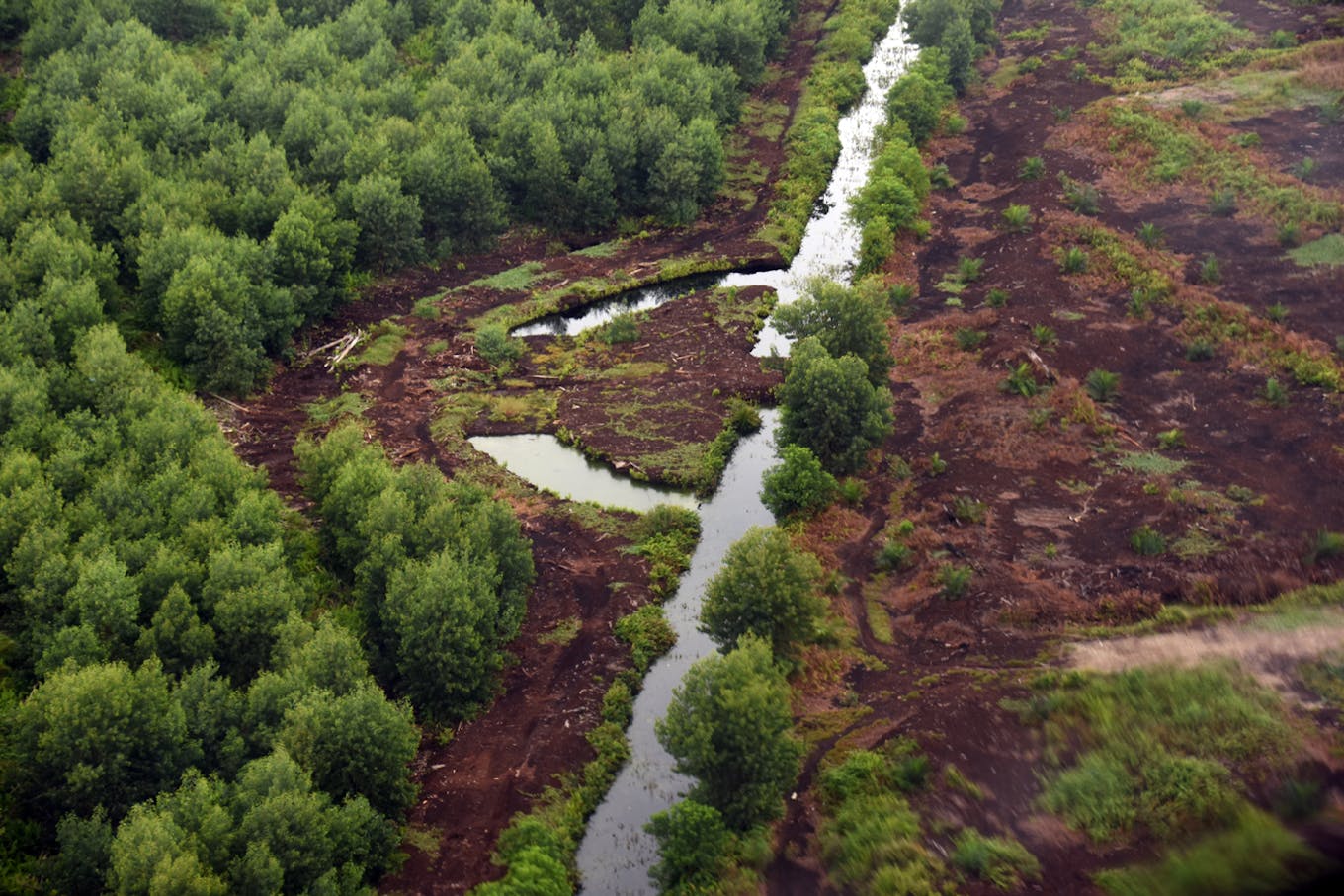
A dam built on a canal running through an APP supplier’s acacia plantation on peat. The dams are part of peatland management efforts by companies, whose priority is to maintain a steady water table level inside the plantation. Usually, this is between 40 and 90 centimetres below the surface.
Dams in plantations are therefore not a permanent blockage of canals; if the water table rises too high inside the plantations, the overflow canal curving around the structure can be opened up to let water drain out .
Companies argue that the water table in plantations is higher than on unmanaged landscapes, where illegal canals have been dug, and this prevents the peat from becoming dangerously dry and flammable.
However, green groups and scientists argue that as long as any portion of the peat is dry, it will eventually decompose and subside, threatening the long-term health of the peatland and surrounding areas. Their call is for companies to re-wet all plantations on peat and switch to wetland-compatible species instead of acacia.
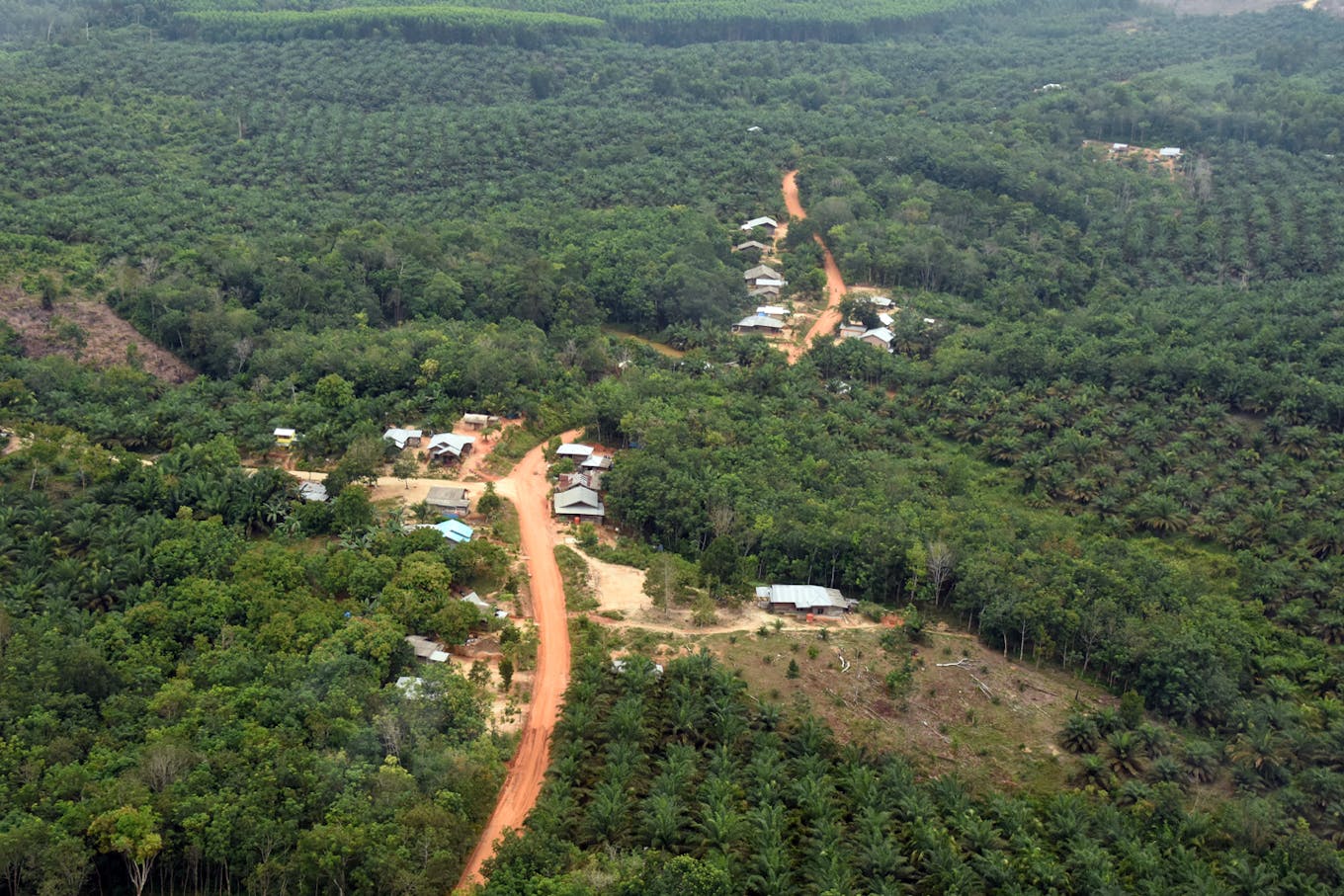
A patchwork landscape of oil palm and natural forest surrounding a small village in the heart of Riau. The sheer scale of Sumatra’s forest landscape, fuzzy land boundaries and the remoteness of some communities underscore the challenges of monitoring and enforcing laws against deforestation or burning.
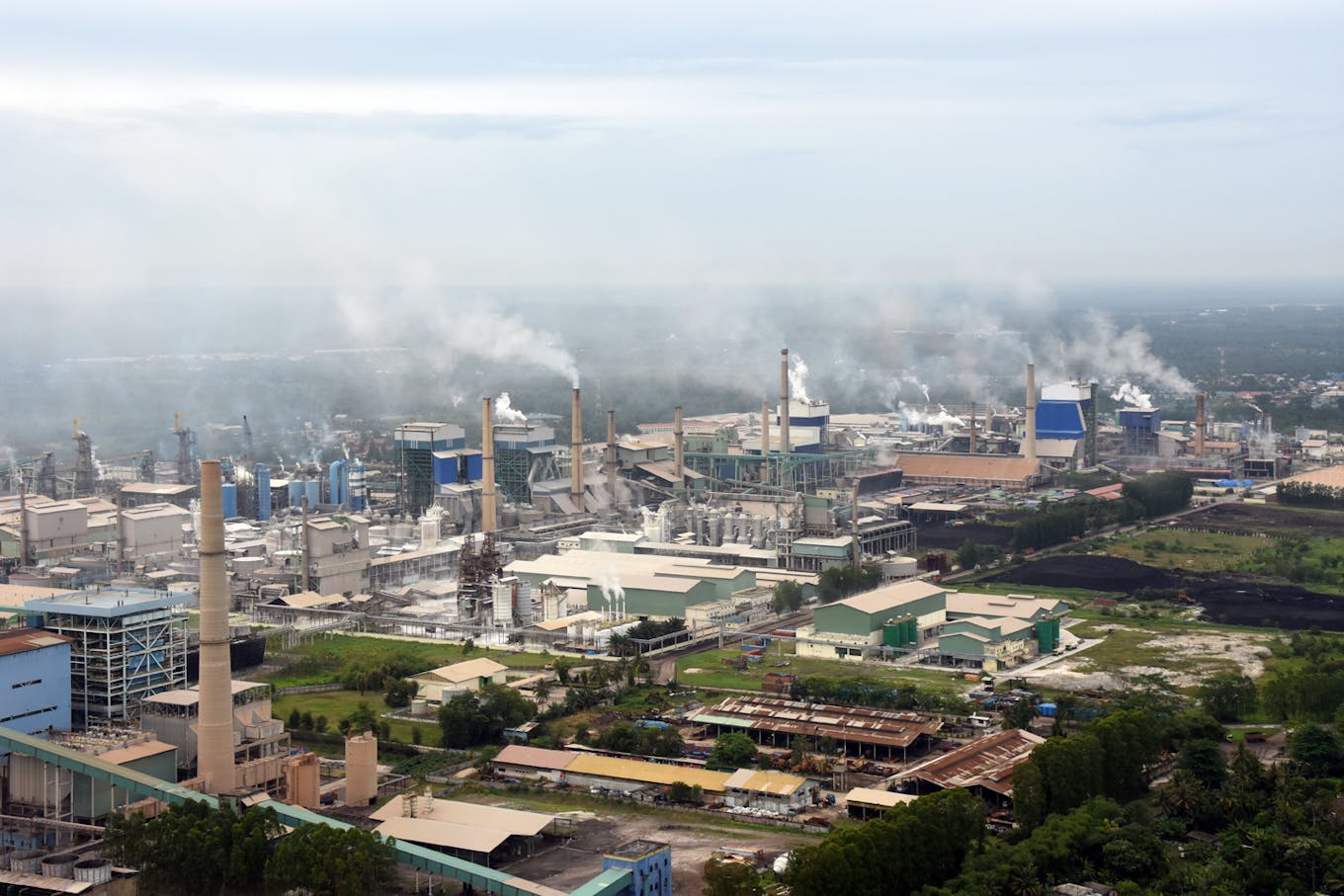
The Indah Kiat Perawang Mill, APP’s largest mill in Indonesia, has a production capacity of about 1.9 million tonnes of pulp per year. It will soon be surpassed by APP’s newly-acquired PT OKI Mill in South Sumatra, which will have an annual capacity of 2.8 million tonnes of pulp.
Green groups are concerned that APP may violate its zero deforestation promise to fulfil this added capacity, but the company has stated that “our FCP commitment takes precedence over maximising our production”.
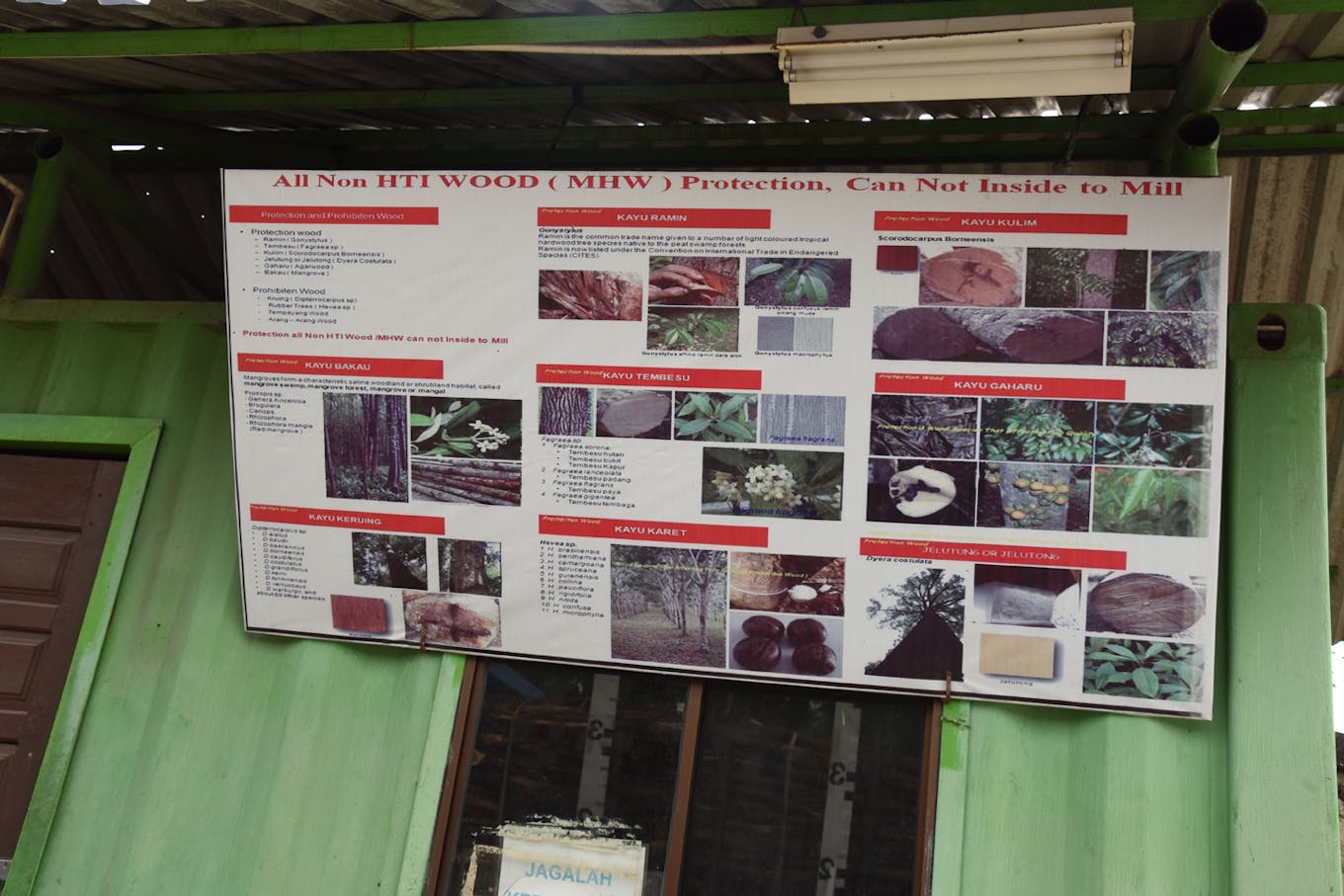
A sign outside APP’s mill indicating that non-plantation wood is not allowed onto the premises.
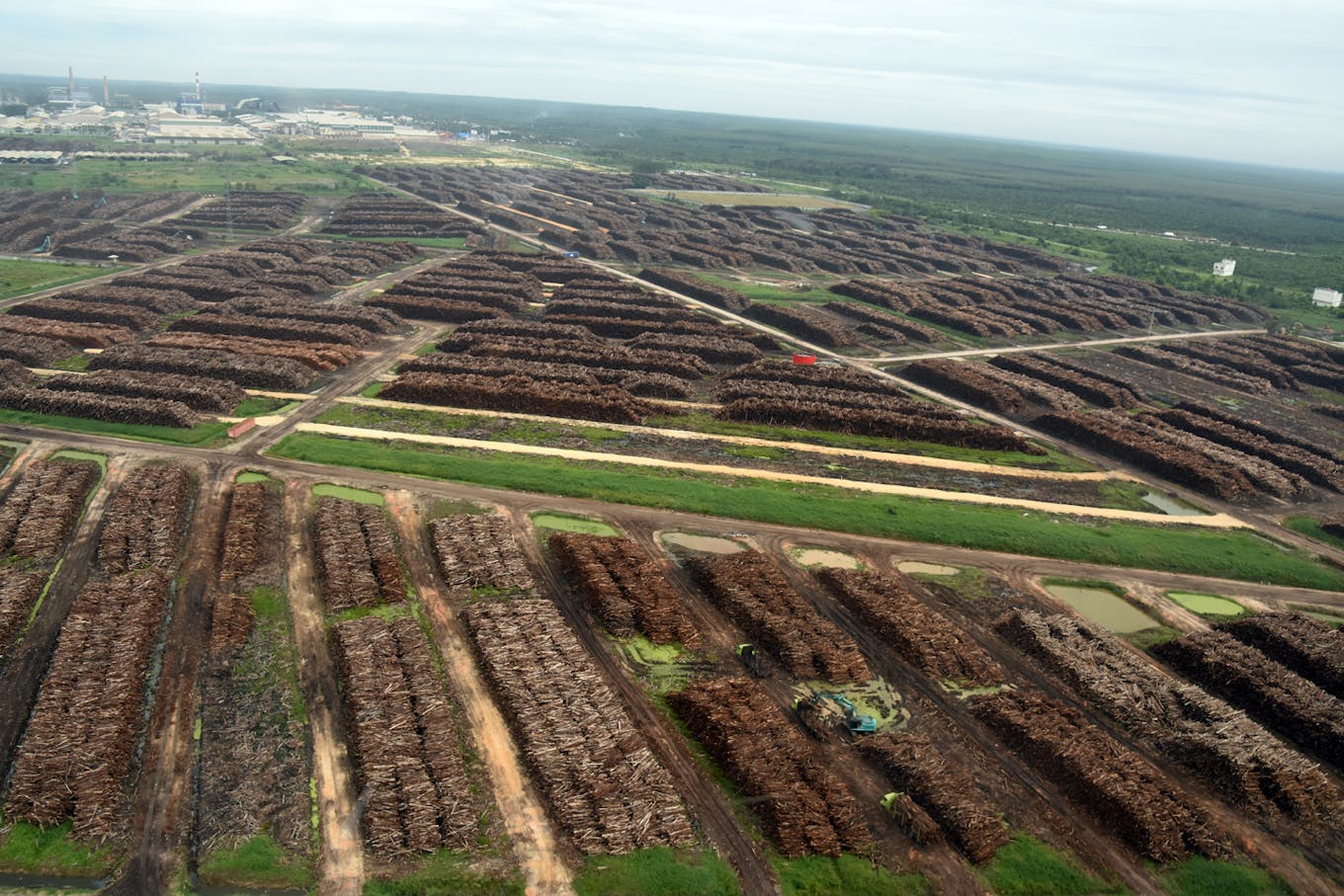
A log yard located next to APP’s Indah Kiat Perawang Mill. It holds about 650,000 cubic metres of stock, enough to supply the mill for three months. The logs are sorted according to wood type and the eco-certification obtained by the plantation of origin.
While APP’s products are not certified by the Forest Stewardship Council — widely considered the industry standard for responsible forest products — it has obtained the Indonesian Forestry Certification Cooperation (IFCC) stamp for over 300,000 hectares of its suppliers’ plantations. This is in turn certified by the Programme for the Endorsement of Forest Certification, which assesses certification schemes.
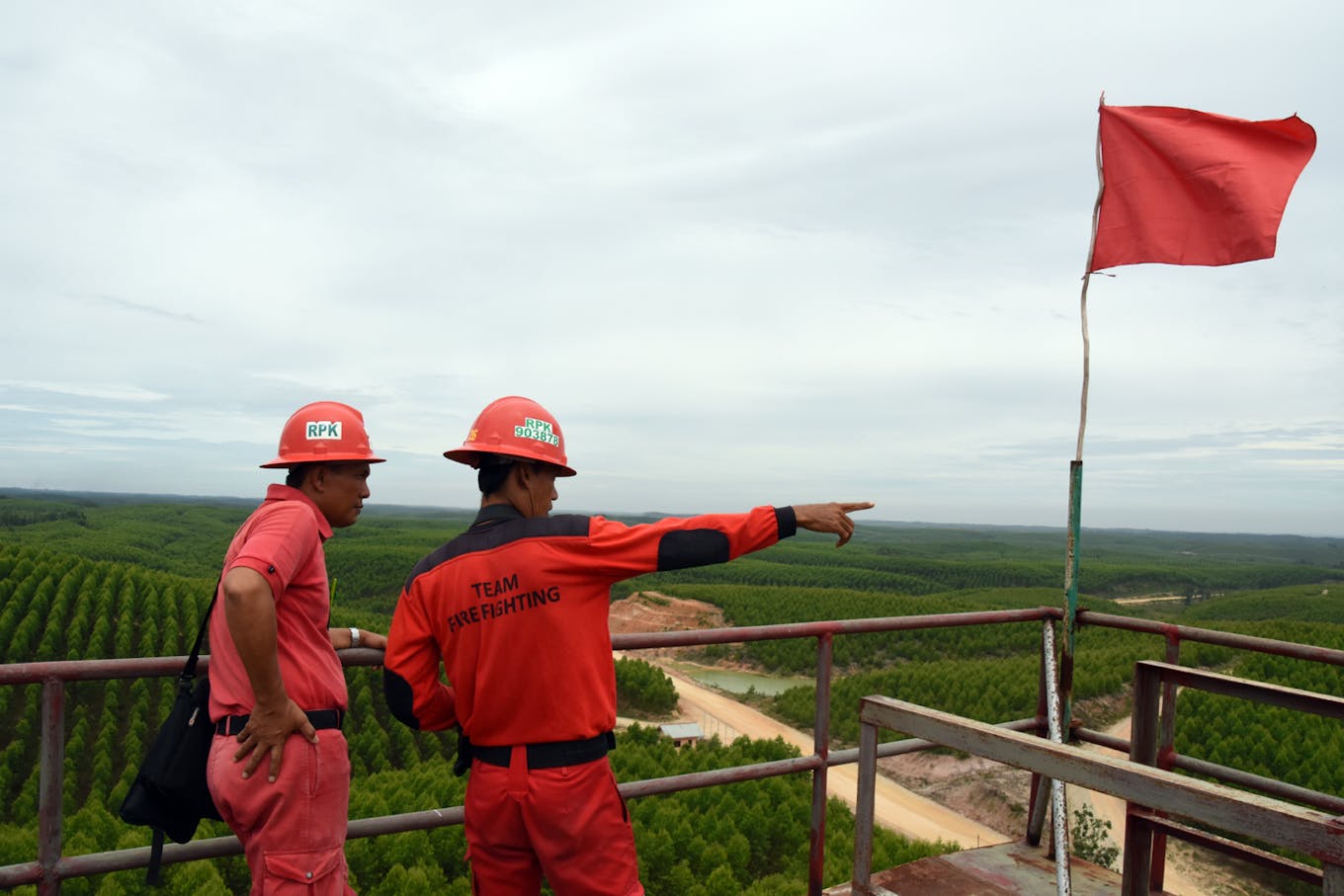
Members of the firefighting team at APP supplier, PT Arara Abadi, on a fire tower in the middle of a eucalyptus plantation. The red flag indicates that the tower is manned. The company has a team of 60 firefighters and also recruits residents from surrounding villages to form community firefighting teams.
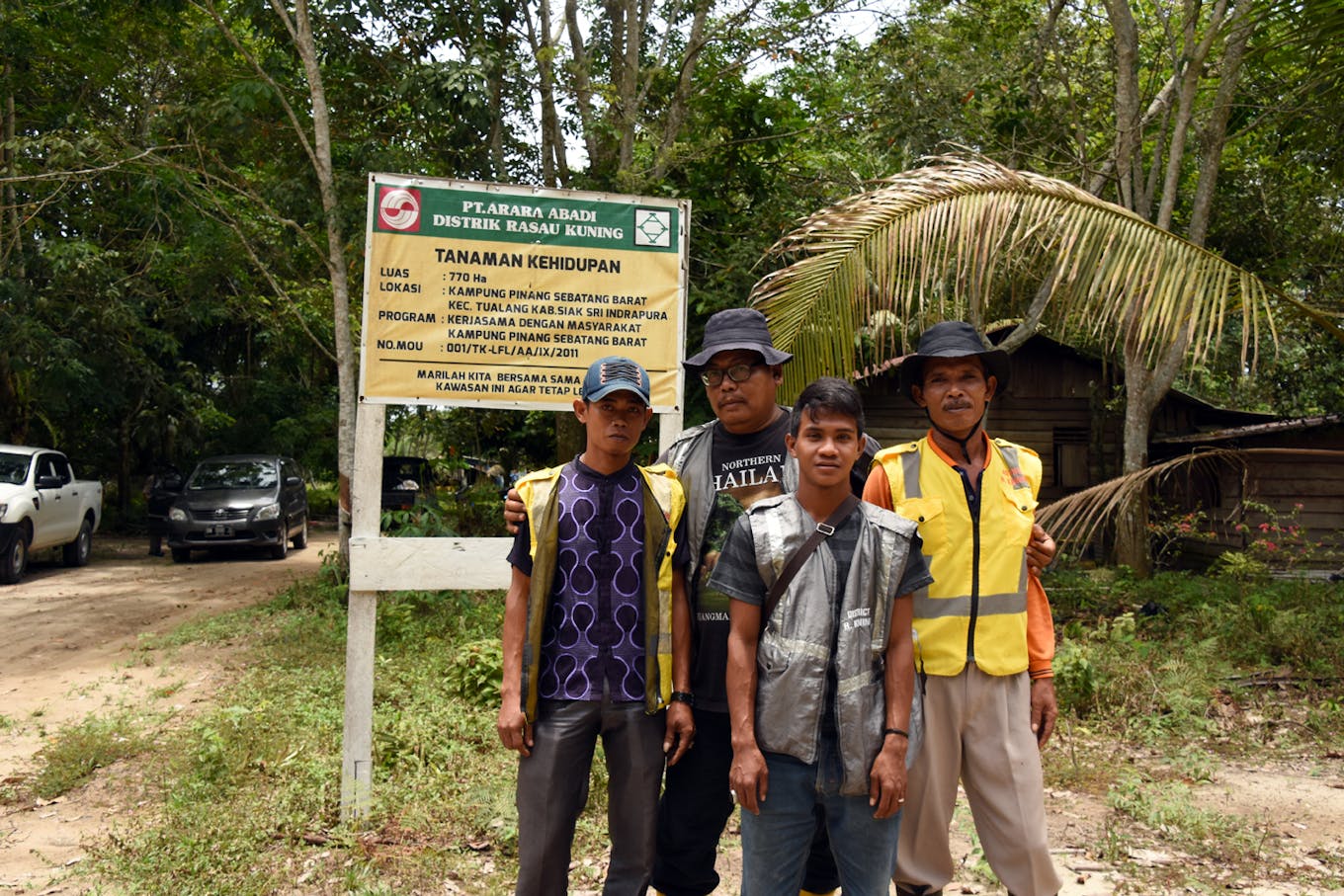
L-R: Arafik, Muklis, Dian and Suhartono are residents of Suka Jaya village, which is located in PT Arara Abadi’s concessions. They used to be farmers but are now employed as community firefighters by the company. Their duties include patrolling the village to detect fires and speaking to villagers about the importance of not burning the land.
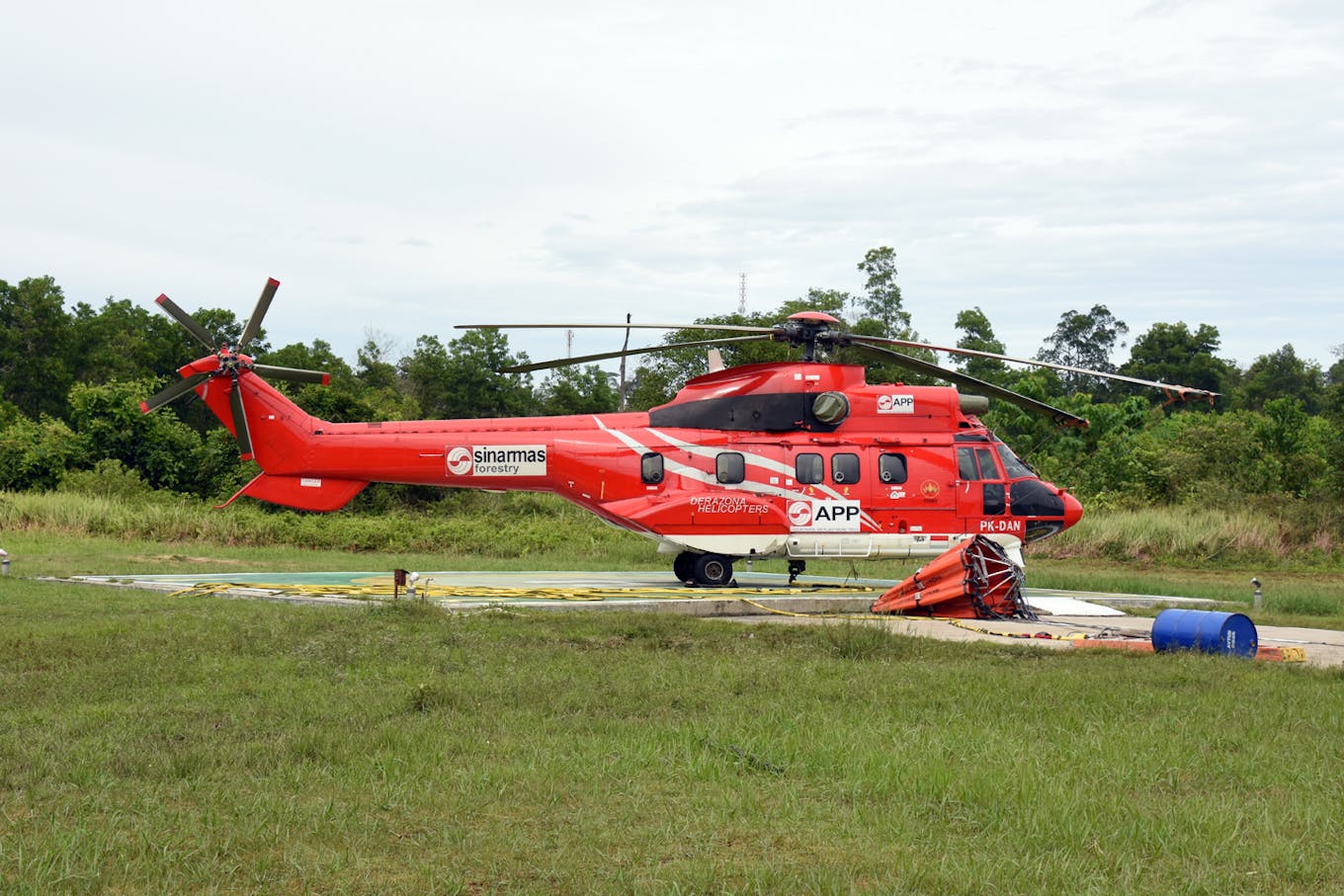
A Super Puma helicopter, one of APP’s latest purchases to boost its firefighting capacity. The company spent US$20 million on fire prevention and suppression measures late last year, after it faced a heavy backlash for failing to control and extinguish several fires on its supplier’s concessions last year.
The three Super Pumas can carry up to 3,500 litres of water each at a time for water bombing, which is more than thrice the capacity of a standard helicopter.
Besides the choppers, APP also invested in an aircraft fitted with a thermal camera for aerial patrols, and a new monitoring system which can detect hotspots in real time.
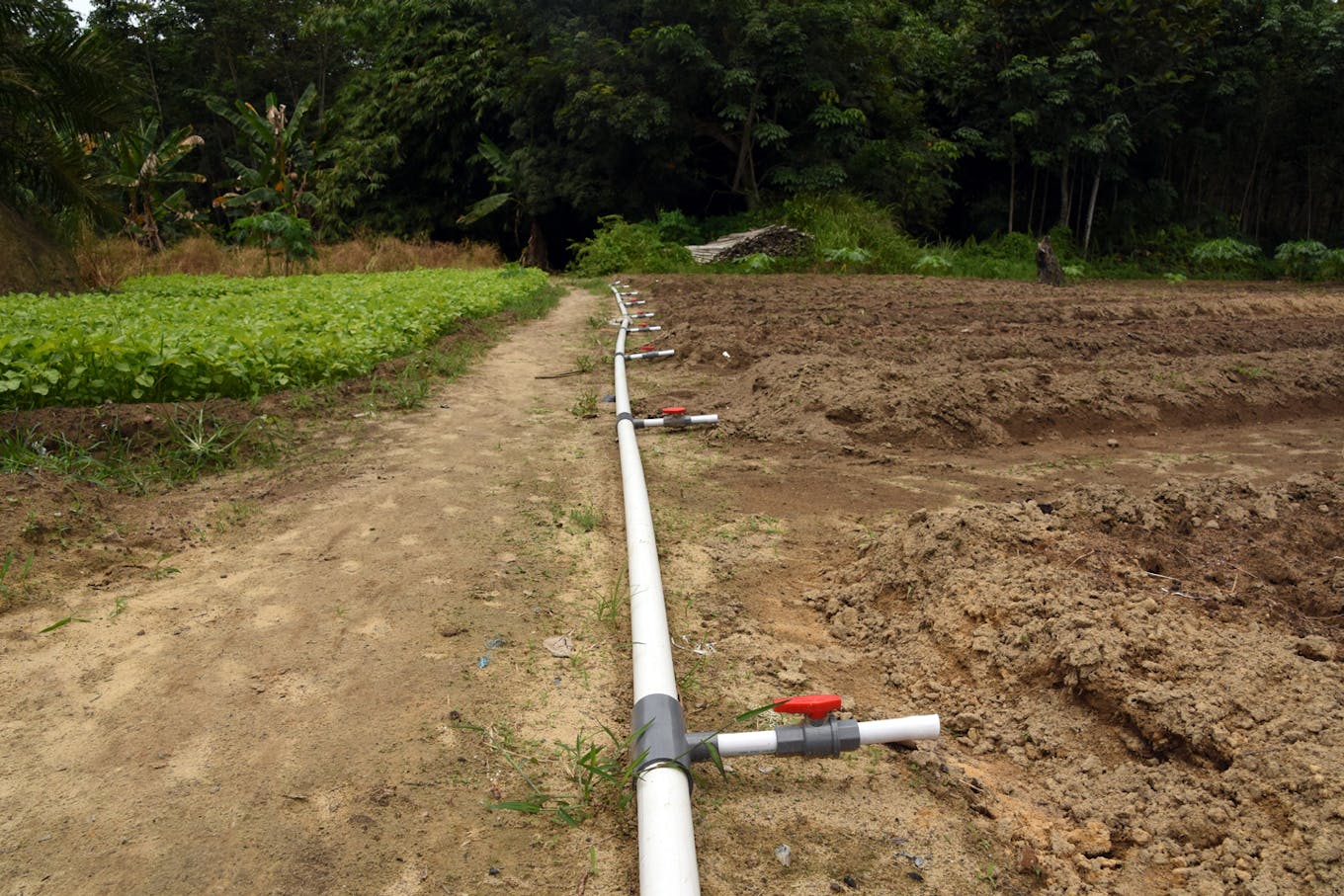
A new irrigation system in Suka Jaya village, where APP has funded the development of a community agroforestry programme, another initiative launched after last year’s disastrous haze season.
Known as the Desa Makmur Peduli Api (DMPA), loosely translated as Prosperous Villages Without Fire, the project provides seed funding, infrastructure and business development support to villagers so that they do not have to burn land or grow oil palm to support themselves.
Villagers grow food crops such as spinach, cucumber, chillies, papaya and guava on the farm. APP has committed US$10 million to roll out this programme to 500 villages by 2020.
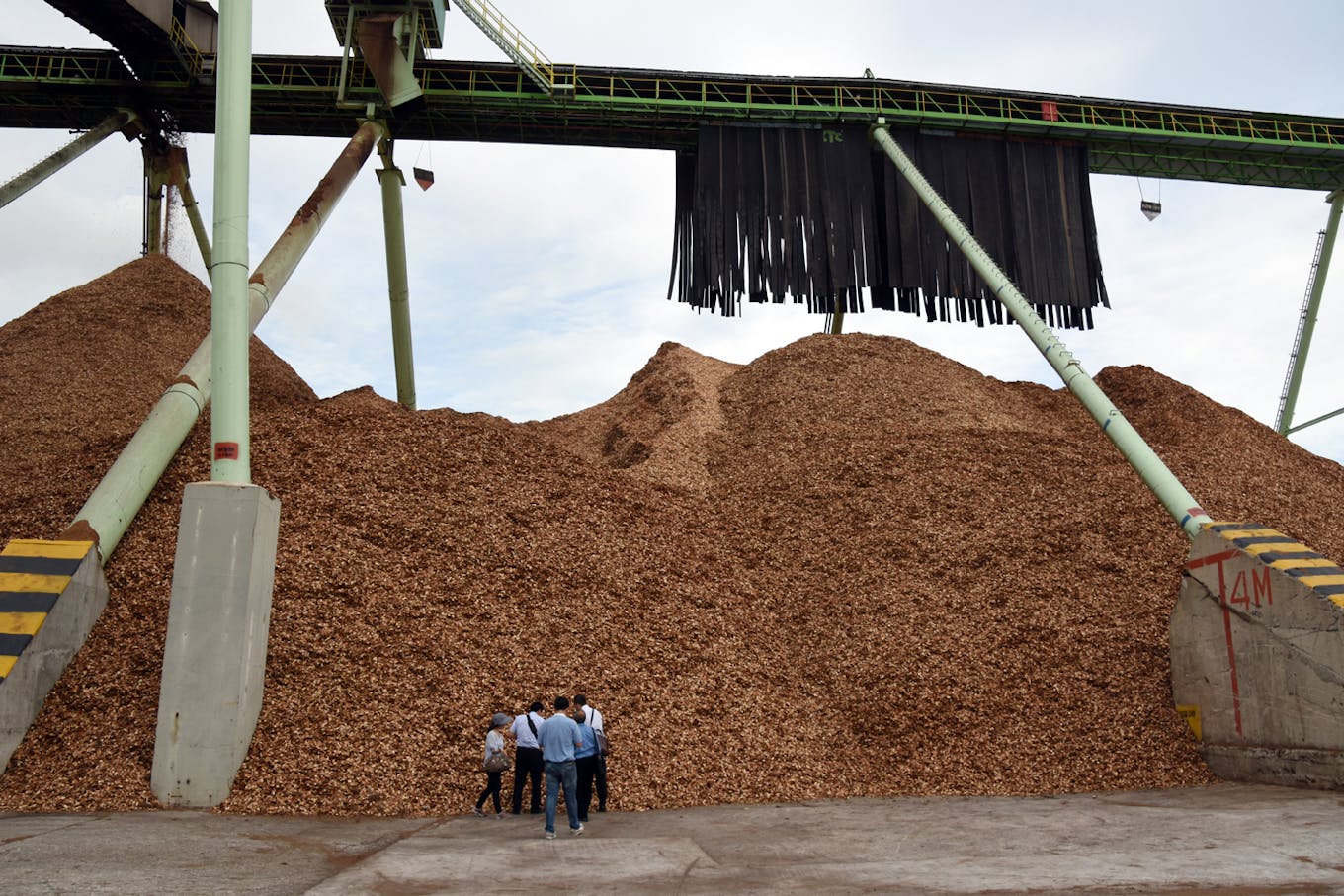
Logs that enter the mill are first cut into wood chips and then cooked into pulp. The mill runs 24 hours a day and all year round, except for scheduled shut-down and maintenance periods. It produces about 8,500 tonnes of pulp per day.
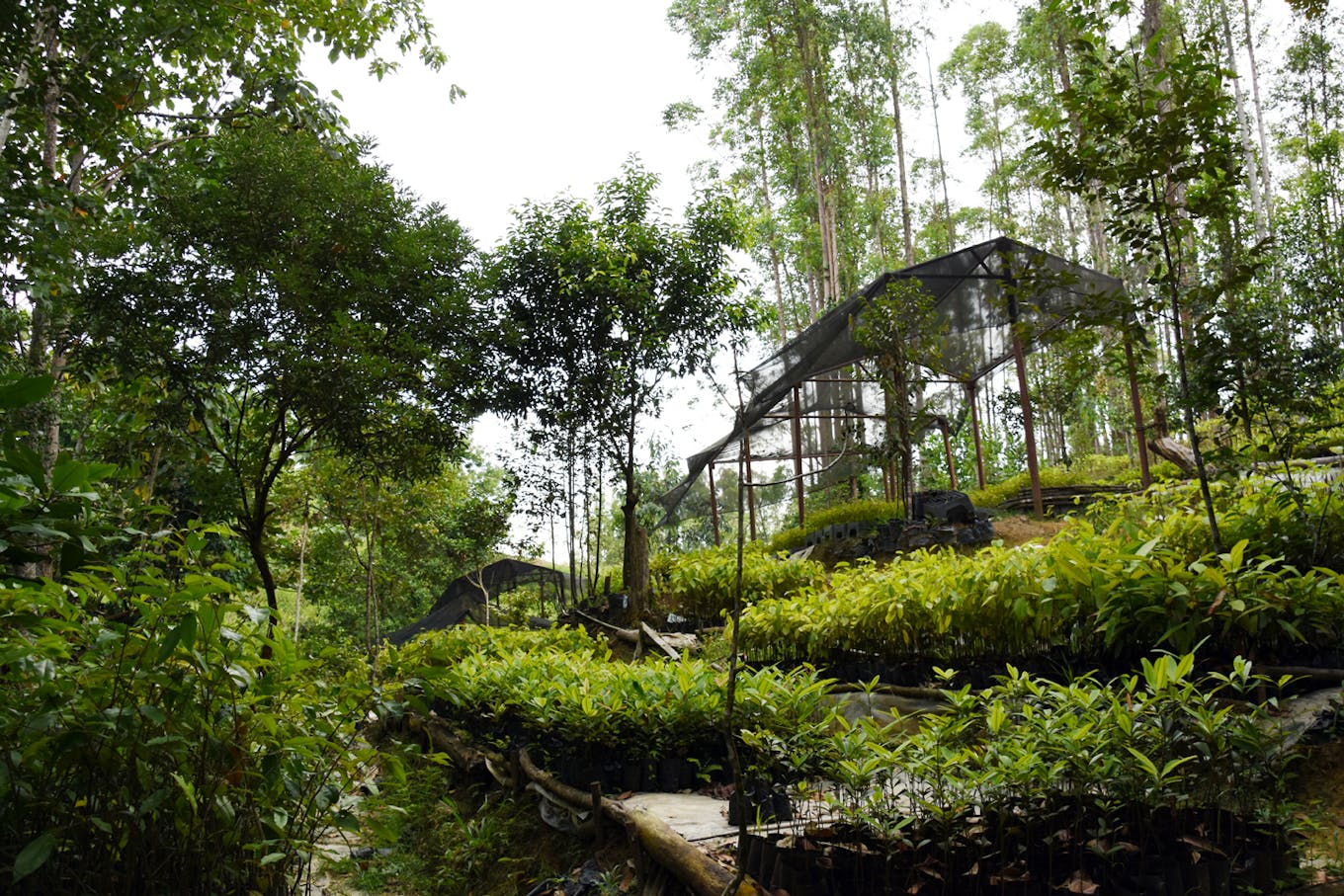
APP’s Arboretum, a 173-hectare area of protected forest where the company runs a nursery of local species. It uses these saplings to replant degraded forests.
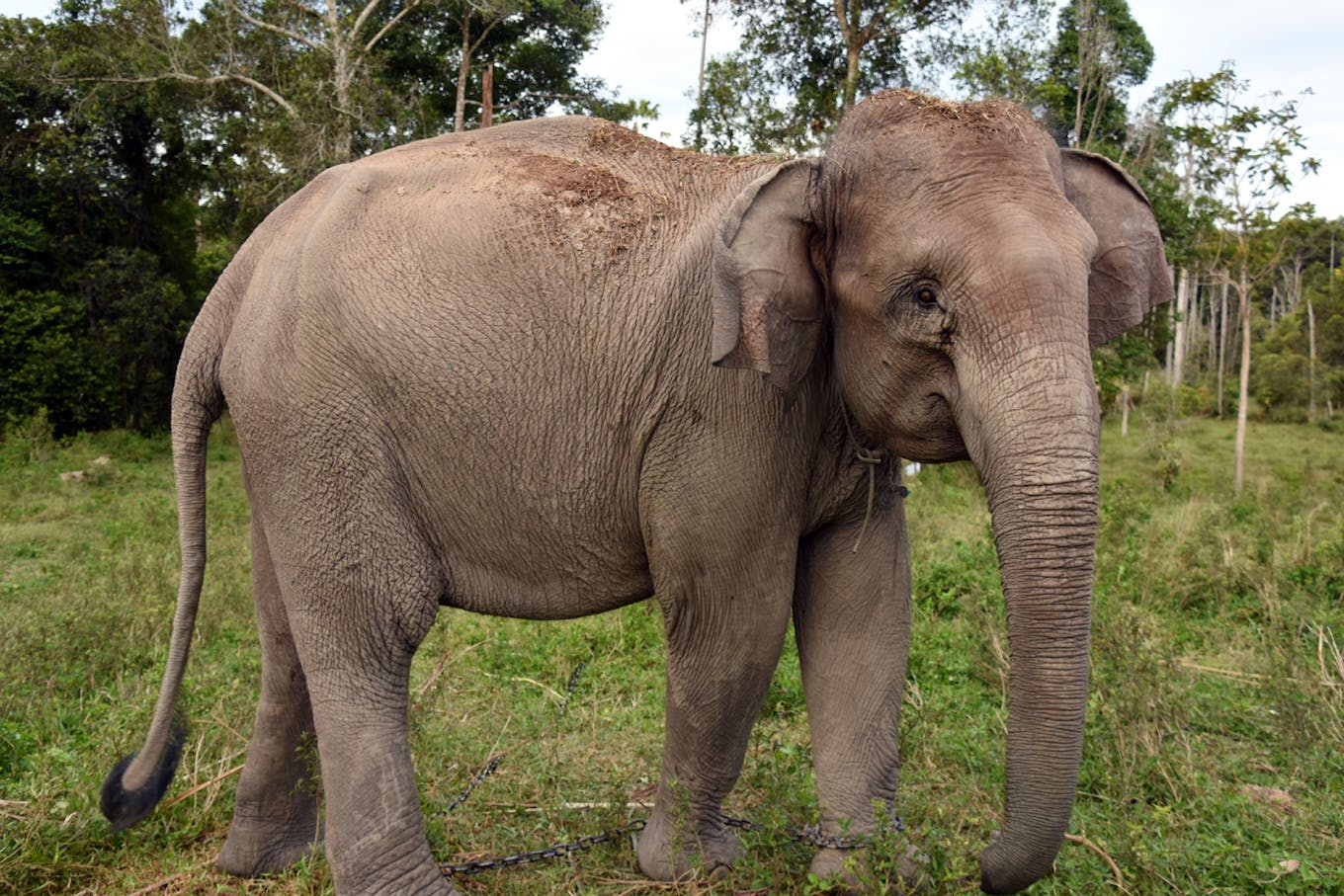
Bubu, a nine-year old elephant that was born in APP’s Arboretum in 2007. APP adopted four elephants from Indonesia’s wildlife department in 1994, and Bubu is one of their offspring. She is tethered to a tree with a 15 metre-long chain. The company claims this is to prevent her from straying into a nearby plantation or village, which would put her in danger.
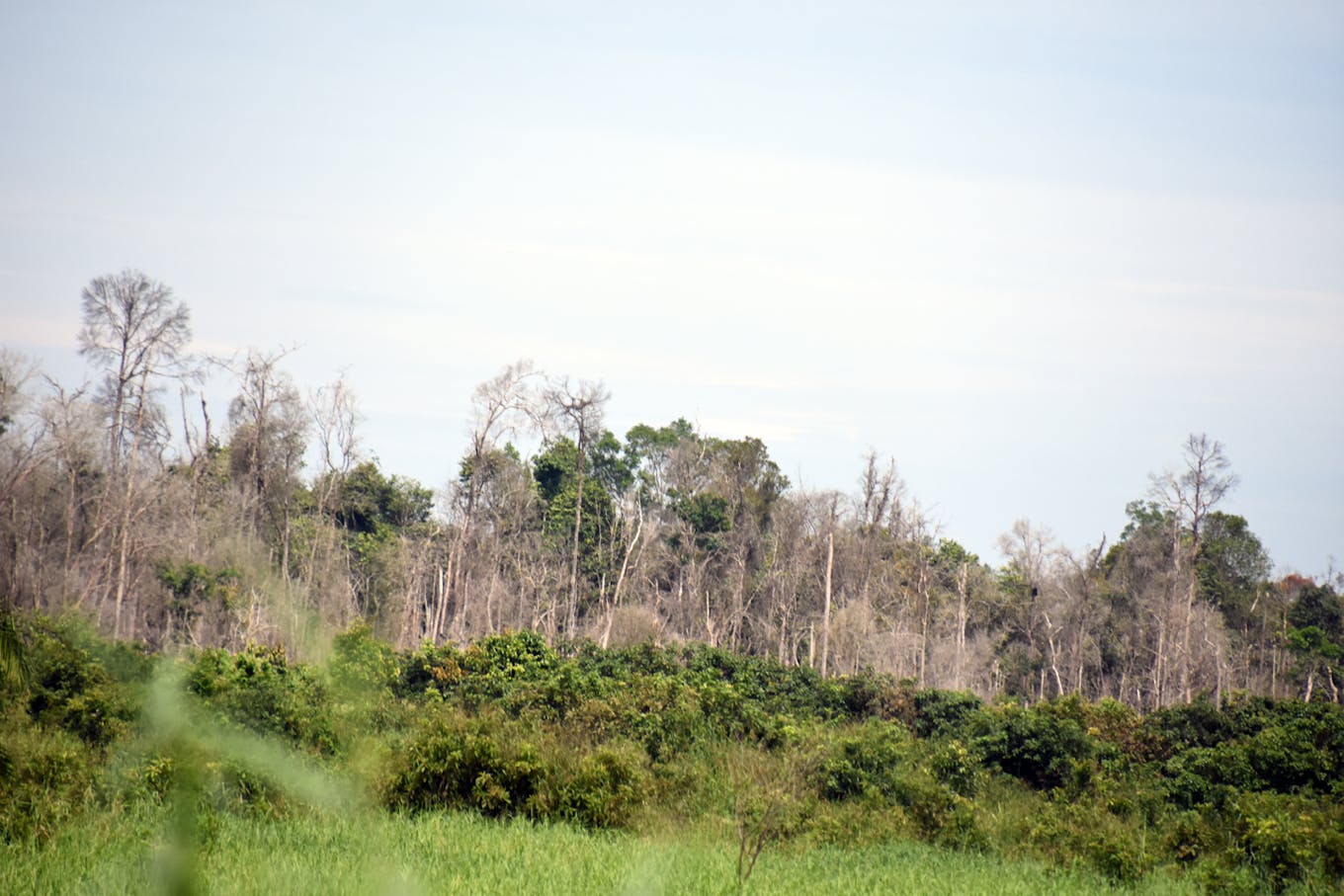
A burnt patch of unmanaged land outside Pangkalan Kerinci, where Asia Pacific Resources International Resources conducts its operations.
Natural forest has to be burnt multiple times to make way for plantations. Initial rounds of burning kill the trees while subsequent fires clear the land. The trees in this picture are left standing but are dead. The Indonesia-based Center for International Forestry and Research (CIFOR) calls such landscapes “forest cemeteries”.
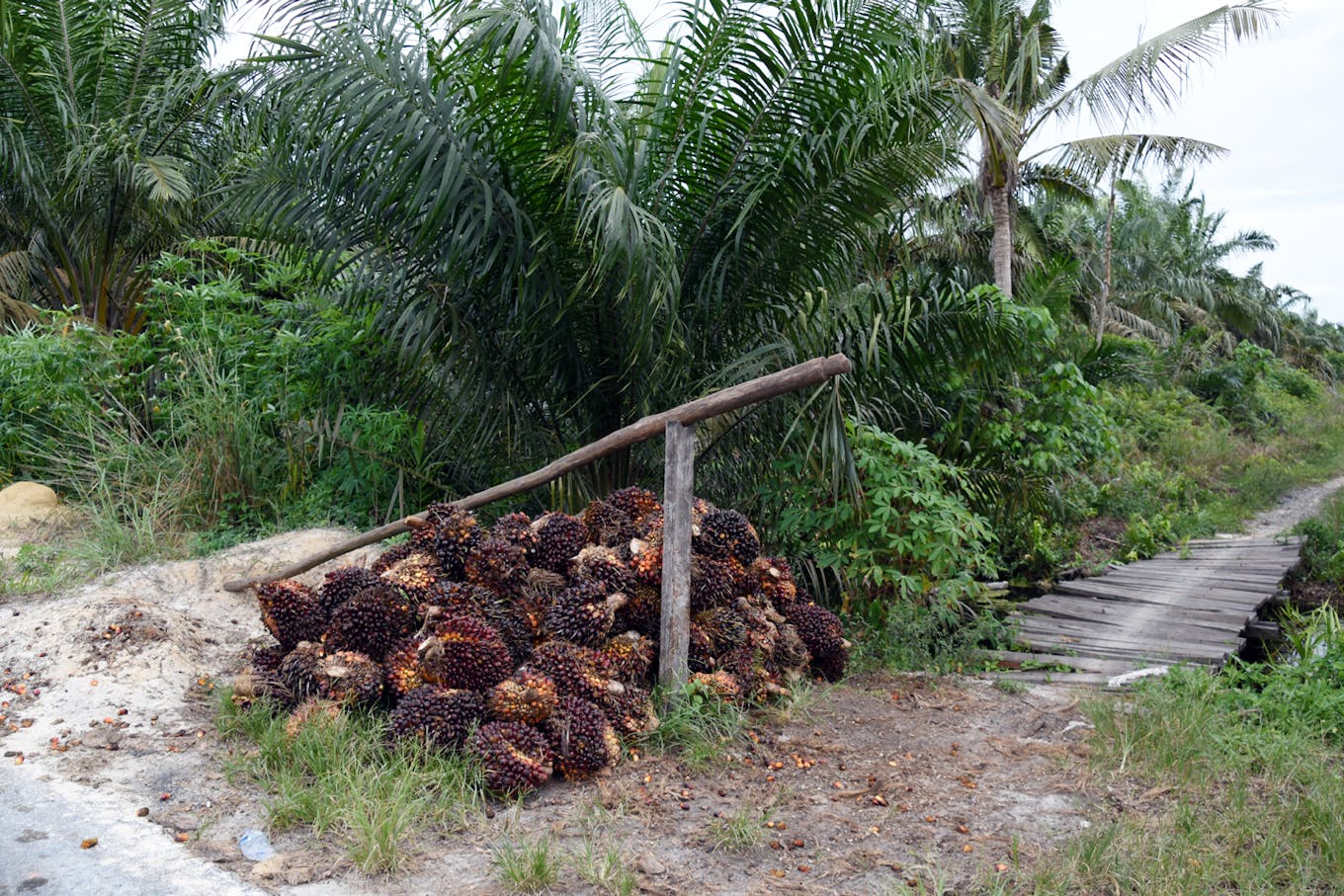
A pile of oil palm fruit awaits collection on the roadside in a village some miles from Pangkalan Kerinci. Locals explain that a middleman firm will drive through the village, paying residents for the fruit by weight. It’s not clear who these buyers are, or where the fruit will end up.
They add that one hectare of oil palm plantation yields about 1.5 metric tonnes of the crop, which in turn sells at 1,300 rupiah (S$0.13) per kg, or S$130 per tonne.
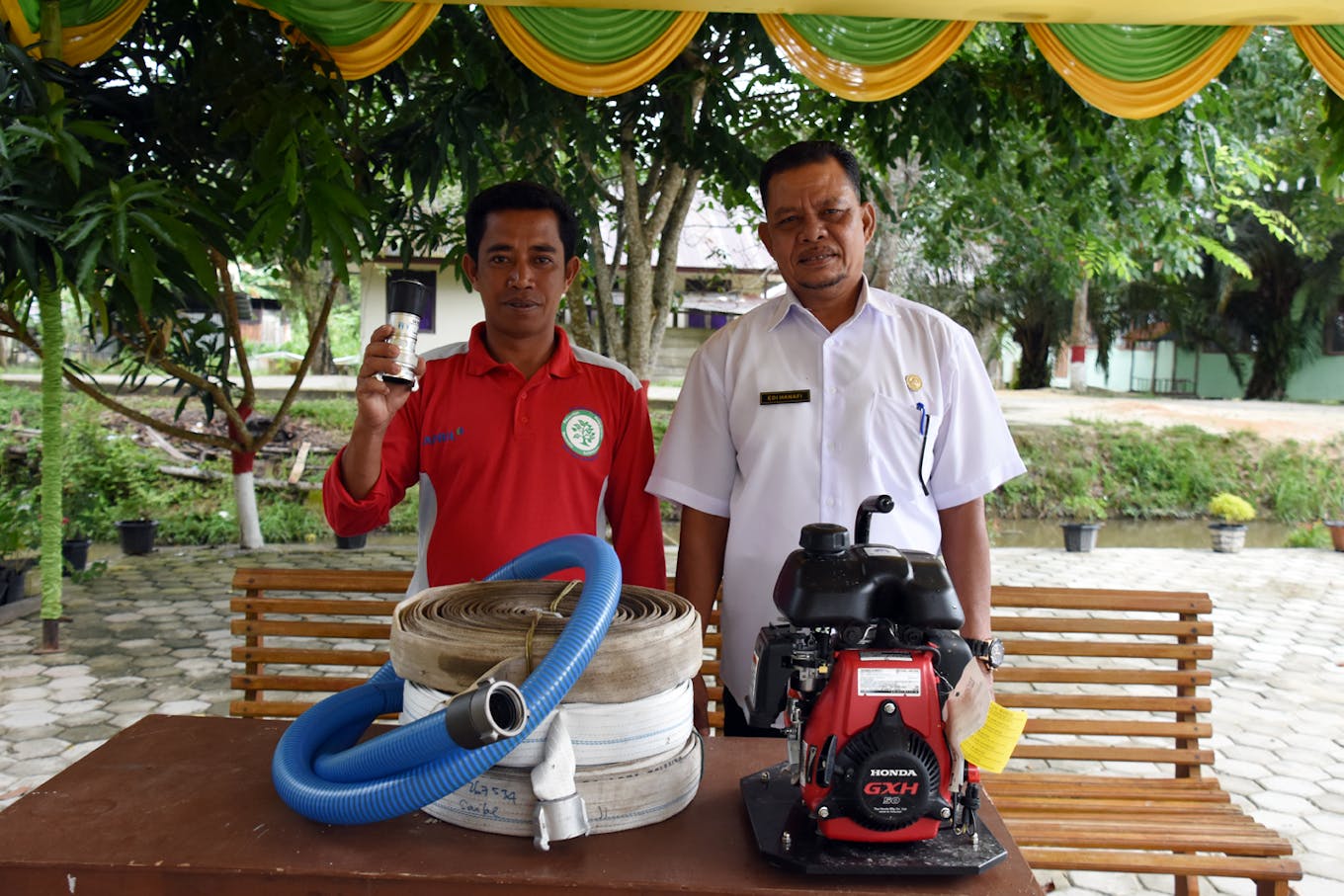
APRIL’s Fire Free Village Programme gives communities outside its concessions an incentive to avoid burning the land during the driest months of the year to reduce the likelihood of uncontrollable fires. It offers a range of tools to help communities achieve this, including assistance to mechanically clear 20 hectares per village, providing sustainable agricultural alternatives and community awareness programmes.
Villages that manage to stay ‘fire-free’ during the programme period receive 100 million rupiah (S$10,040) worth of funding for community infrastructure development or firefighting equipment.
Here, Afrizal, a resident of Pelalawan village who is hired by APRIL as a crew leader, and village officer Edi Hanafi show off the new fire-fighting equipment they bought with last year’s reward.
Overall, APRIL estimates that in the nine villages that participated in the programme last year, the burnt area has reduced by about 90 per cent.
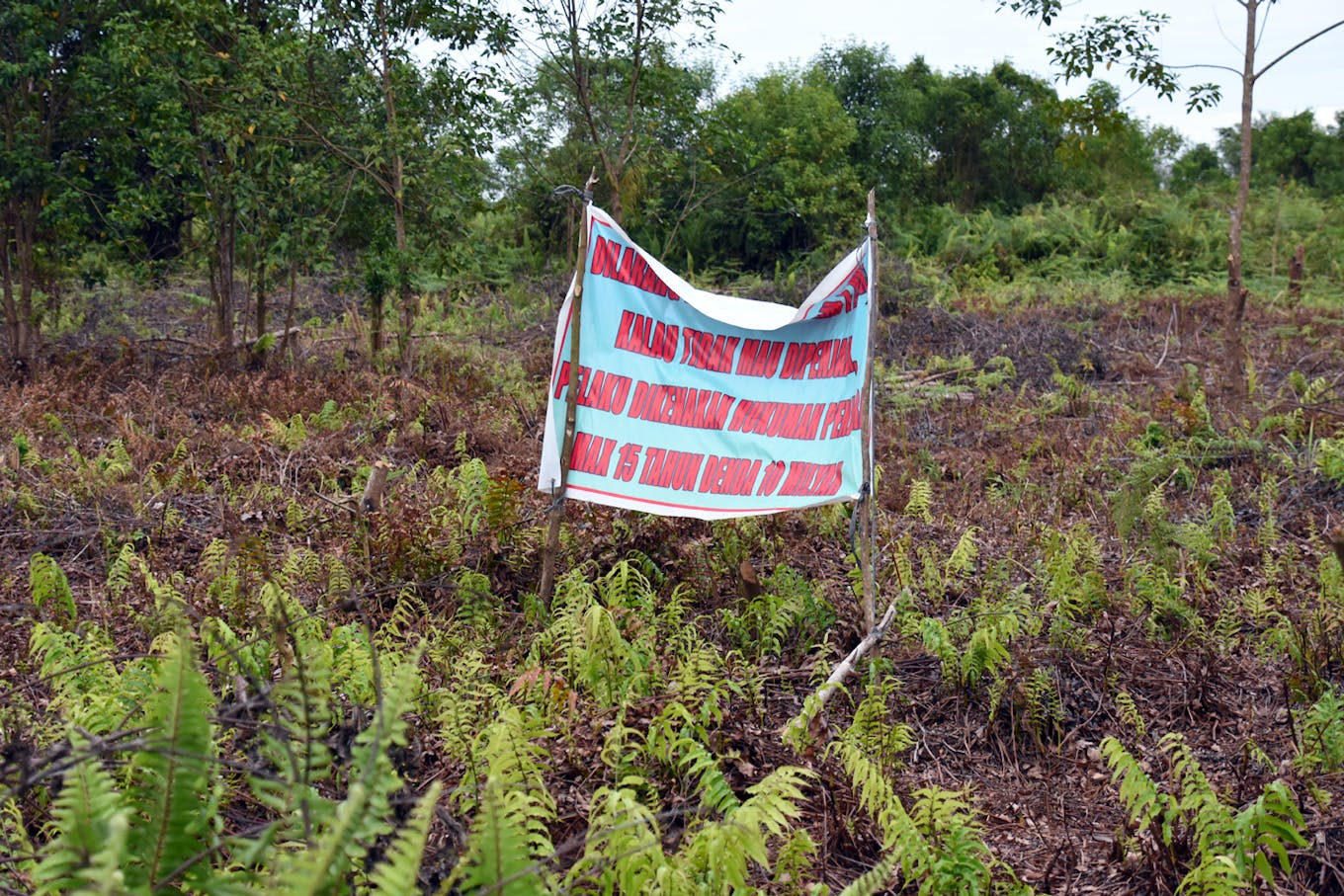
Neighbouring Sering village is also a participant in the Fire Free Village programme, but has not won the reward for two years in a row. Last year, assessors detected 11 hectares of burnt area in the village.
Villagers allege that outsiders who buy the land but do not live in the village burn vegetation to clear land for oil palm cultivation, but this is a claim that APRIL says is difficult to verify or disprove.
This year, Sering is taking no chances. On a patch of land where the vegetation has been cut — the slash phase, which is usually followed by burning — villagers have put up a sign threatening the land owner with jail time and a heavy fine if they burn the vegetation.
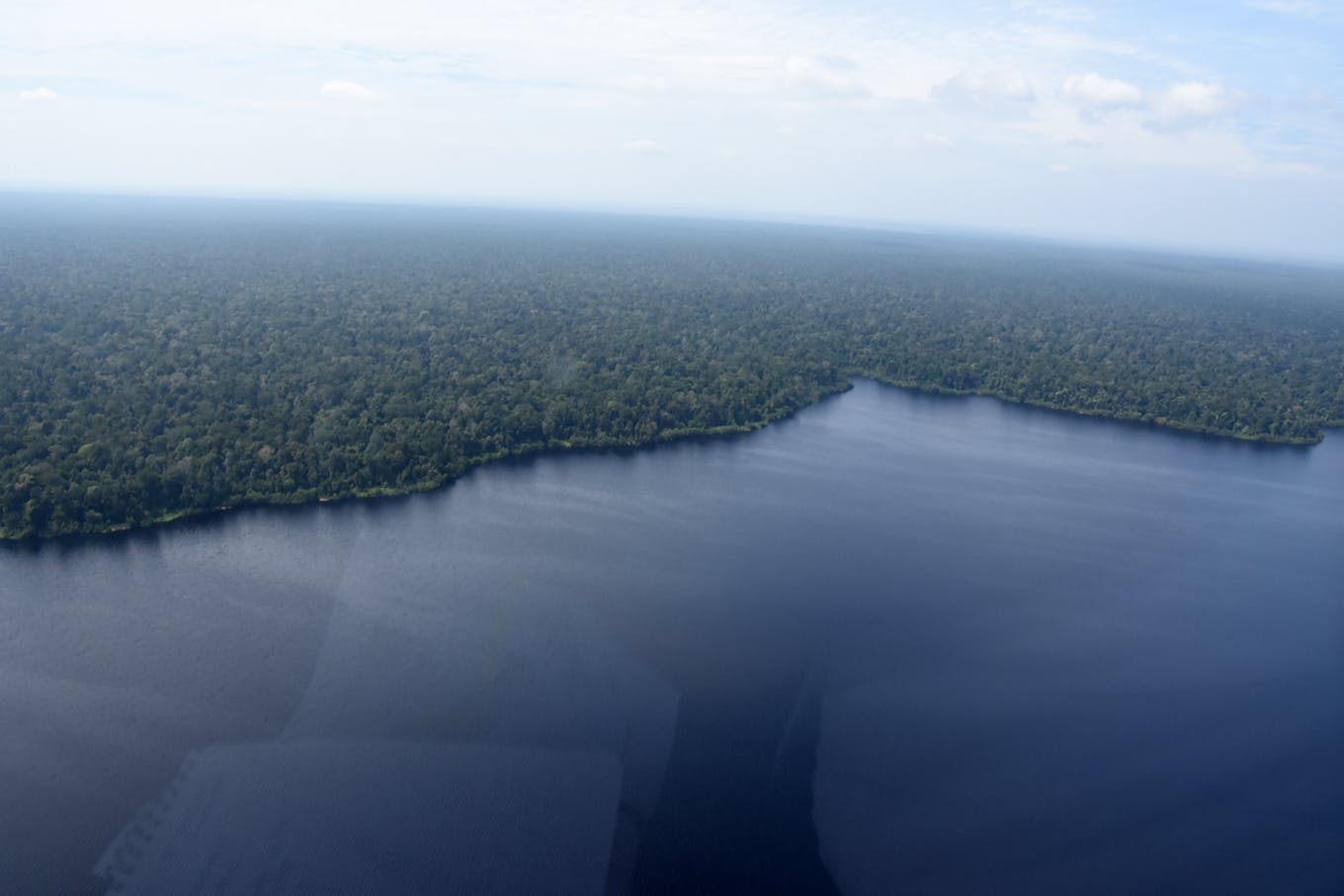
A peat lake in the Riau Ecosystem Restoration (RER) area, a 150,000 hectare expanse of peatland on the Kampar Peninsula that was previously deforested and degraded. APRIL, in conjunction with green groups such as Fauna and Flora International, manages this area as a conservation and restoration landscape.
The RER was set up by APRIL Group in 2013, and the company last December announced it would invest US$100 million in conservation and restoration activities over the next 10 years.
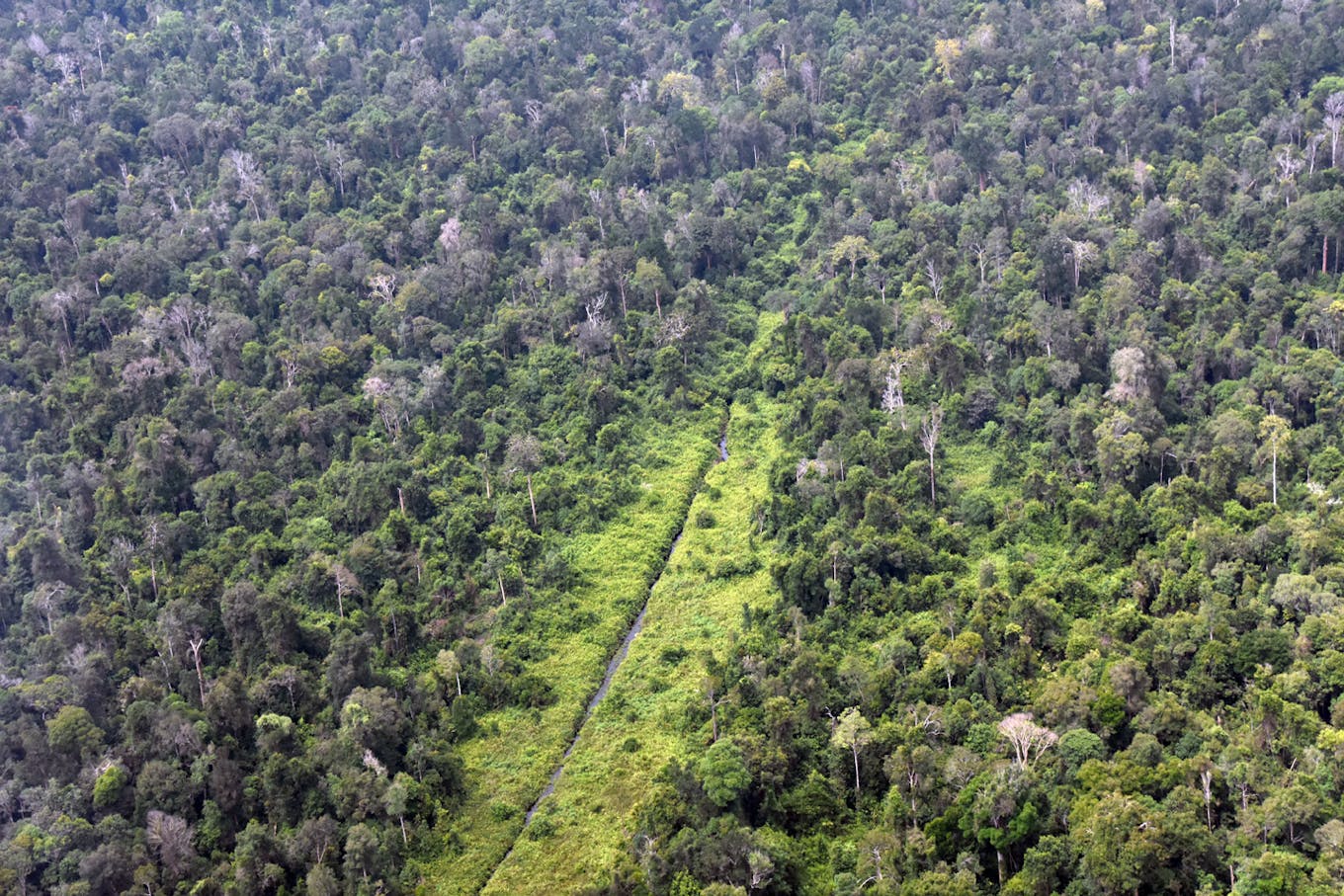
The RER workplan includes filling in abandoned canals running through the restoration area, such as the one pictured above, planting some 2 million native species over the next decade, and employing community members as forest rangers to patrol and protect the area.
Check out our accompanying special report: Healthy forests, zero burning, prosperous economy: Can Indonesia have it all?
Eco-Business visited APRIL and APP’s operations in Riau for this story, and interviewed government agencies and civil society organisations in Jakarta. Both companies provided accommodation during plantation visits, and APP paid for Eco-Business’s travel to and from Indonesia. All costs in Jakarta were borne by Eco-Business.

